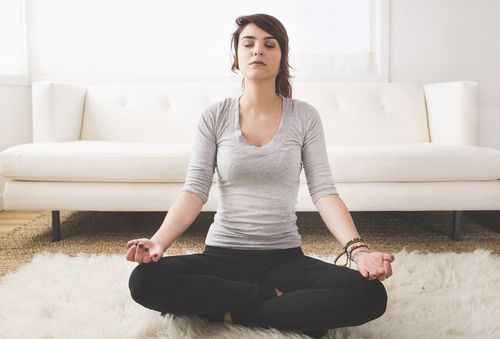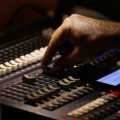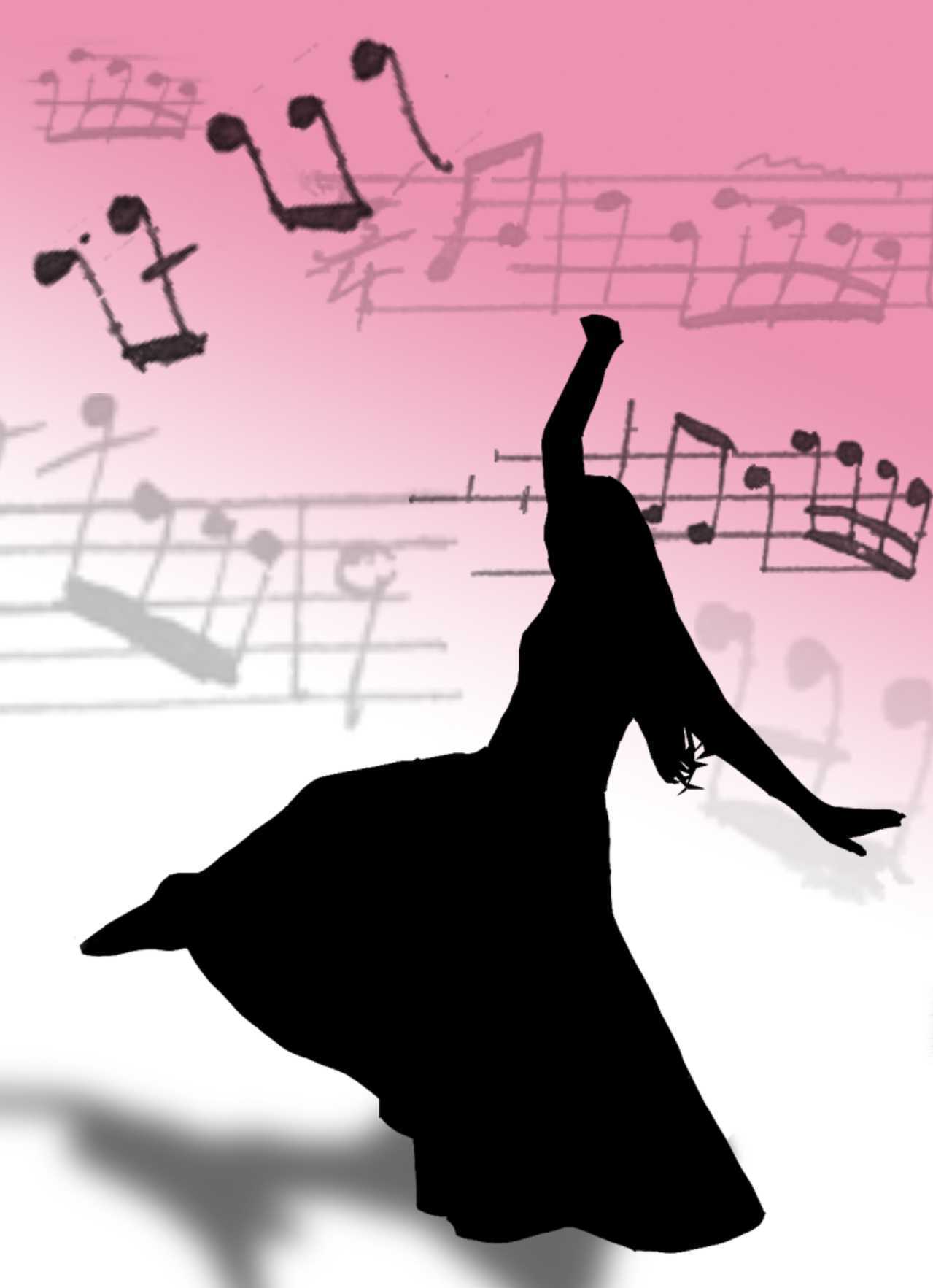Here’s an all-too-common scenario that can plague even the most seasoned musicians: You put countless hours into preparing for a big concert, but despite your hard work and preparation, when the big night comes, you feel gripped with anxiety. You struggle through the performance and don’t play nearly as well as you’d hoped. Performance anxiety is a serious problem that routinely effects musicians of every age, skill level and background, so you’re just as likely to suffer from it whether you’re the bassist of a punk band or an opera singer slated to perform at Carnegie Hall.
But if anxiety centered around performing out in public is keeping you from reaching your full potential on stage, there are absolutely things you can do to help, and you’re not alone in your struggles. We’ve put together a list of 10 helpful tips on how to treat and overcome performance anxiety.

Photo credit: Kaesler Media / Shutterstock.com
Tip #1: You won’t be able to treat your performance anxiety unless you admit you have a problem
If performance anxiety is negatively affecting your performances but you’re too afraid to admit it, then your problem is likely to stay the same or potentially get much worse as time drags on. None of our tips and actionable advice can help you unless you’re willing to admit you actually have a performance anxiety problem. Are you unsure if performance anxiety is having an effect on you? Here’s a few common physical symptoms:
-Rapid heartbeat and increased breathing
-Dry mouth
-Shaky hands, knees, lips, and voice
-Profuse sweating
-Nausea and an indigestion
-Blurred vision
These are just some of the physical complications commonly associated with performance anxiety. Though it varies from person-to-person, the effects performance anxiety can have on a person’s mental health can be quite serious. Everything from feelings of impending doom, doubt and intense fear to anger, self-sabotage and resentment can be spurred on by the simple act of a person walking onto a stage. If you’ve experienced any of these symptoms, then you are most likely a sufferer of performance anxiety.
You won’t begin to learn how to deal with your problem until you can fully accept the situation you’re in. A musician being dealt a performance anxiety hand isn’t at all fair, but acknowledging it is the first step toward learning how to approach and eventually overcome it.
Tip #2: Get yourself into a strict mindfulness meditation practice
Research is increasingly showing that meditation is an effective way to treat mental disorders like anxiety and depression. A recent article from the Harvard Medical School profiles some of the remarkable benefits meditation has to give to those who engage in a consistent practice. “(Studies) suggest that mindful meditation can help ease psychological stresses like anxiety, depression, and pain,” says Harvard’s Julie Corliss.

The article goes on to profile Dr. Elizabeth Hoge, a psychiatrist at the Center for Anxiety and Traumatic Stress Disorders at Massachusetts General Hospital and an assistant professor of psychiatry at Harvard Medical School. She claims that mindfulness meditation is a great way to treat anxiety disorders. “People with anxiety have a problem dealing with distracting thoughts that have too much power. They can’t distinguish between a problem-solving thought and a nagging worry that has no benefit. Mindfulness teaches you to recognize, ‘Oh, there’s that thought again. I’ve been here before. But it’s just that—a thought, and not a part of my core self,’” says Dr. Hoge.
For performers, anxiety can sometimes feel like a runaway train of thoughts that are speeding away out of control. But meditation is an act that forces a person to confront and become familiar with all of their thoughts–– all of them. If you can learn how to get comfortable with everything going on in your mind before your performance, you’ll have a better chance at maintaining control of your thoughts and emotions on stage. And the benefits of a mindfulness meditation practice transcend the stage. Studies have shown that folks who regularly practice meditation are seeing improvements in their overall well-being in their jobs, at home and in their relationships.
Tip #3: Learn to understand and harness your stress
Stressing out about something can actually be a good thing. It’s your body’s way of saying, “Hey. What you’re doing here is important, so I’m giving you all the resources you need to get the job done right.” All the physical symptoms you experience when you suffer from performance anxiety––the racing heartbeat, increased breathing and sweaty palms––stem from the fact that something in your brain has communicated the message of “help!” to your body.
In science, this is called the fight-or-flight response. As humans, we’re hardwired for survival, and stressful situations, like performances, can trick your body into thinking it’s in survival mode. The fight or flight response floods our bodies with the adrenaline it would need to either fight to the death or to run to safety.
Unfortunately, both of these responses aren’t exactly appropriate for something like a piano recital. Your brain doesn’t know what to do with all the extra resources the body is sending its way, and then bam, there’s the performance anxiety. Understanding your stress centered around performancing will help you to identify patterns and alter them. Even the simple act of letting yourself know you’re going to be okay through a performance could have a positive effect on managing your anxiety.
Tip #4: Try to identify what exactly makes you anxious about performing
This can seem like an impossible task for some people, but it’s essential if you want to learn how to tackle your performance anxiety. Why is it that some musicians are able to pull off flawless performances without appearing nervous but that even the thought of getting on stage is enough to send your heart racing?
For many musicians, performance anxiety stress is brought on from triggers rooted back in their childhoods. For others, the stress might be tied to complications brought on from unrealistic expectations centered around personal or professional ambitions or an overall sense of doubt that can affect everything in a person’s life, not just performing on stage. Only you can know the root of where your performance stresses come from, and you won’t discover it unless you investigate yourself thoroughly.
Even just thinking about your performance anxiety will probably be enough to make yourself feel deeply uncomfortable, but that’s just what you’ll have to do in order to get to the bottom of your stress. Once you’re able to recognize exactly what about performing on stage makes you feel anxious, you’ll be able to better overcome your anxiety. If dredging up old thoughts and feelings is especially traumatic for you, it’s probably a good idea to do this in a professional therapeutic setting if you’re able to. What you’ll learn about yourself in this process will be invaluable in the fight against your performance anxiety.
Tip #5: Get on stage as much as you possibly can
A good way to come to terms with and eventually overcome performance anxiety is to get on stage as much as possible. A quick note here, this is a great tip for casual anxiety sufferers, but is not recommended for those with serious anxiety disorders. If you suffer from serious anxiety complications, we advise you to seek help from a professional.
 Getting used to performing on stage as much as possible is a great way to reduce performance stress and for musicians to confront their fears and doubts head-on. A large part of your anxiety might stem from the fact that you simply don’t get on stage frequently enough and therefore aren’t able to get familiar with the process of performing. Playing in front of an audience more often than you’re used to is the best way to get used to your performance stresses and anxiety triggers.
Getting used to performing on stage as much as possible is a great way to reduce performance stress and for musicians to confront their fears and doubts head-on. A large part of your anxiety might stem from the fact that you simply don’t get on stage frequently enough and therefore aren’t able to get familiar with the process of performing. Playing in front of an audience more often than you’re used to is the best way to get used to your performance stresses and anxiety triggers.
Playing more frequently on stage will look completely different depending on your unique background in music. Concert musicians struggling with performance anxiety should look for ways to perform in front of audiences as much as possible, and this might be a challenge because venues for classical and art music are increasingly sparse. But for singers, songwriters and musicians who play more popular types of music, there’s tons of ways out there to get on stage for low-pressure performances. In particular, open mic nights at local bars, restaurants and coffee shops are good opportunities for anxiety-sufferers to get used to performing on stage in front of mostly empathetic and understanding audiences.
Or another option could be to jump in and find as many real opportunities to perform as possible to get yourself acclimated to performing in front of an audience. Again, this is not recommended for those readers with serious anxiety disorders but is meant for folks who struggle with anxiety brought on by performing.
Tip #6: Start talking about your performance anxiety openly
Adding shame to a problem that’s not your fault is like trying to put a fire out with gasoline––it just makes things worse. If you’re struggling with performance anxiety, there should be nothing to feel shame about. But unfortunately, we live in a culture that often stigmatizes things like anxiety and depression so people don’t talk about it out of fear of being misunderstood.
When someone is visibly sick or injured, we’ll typically go out of our way to recognize the problem and help. But problems like depression or a musician’s performance anxiety are almost completely invisible until the person suffering begins to speak up. Talking about your problems openly will help you to not only acknowledge your problem but to also get valuable insight and advice from your peers who are suffering from the same thing.
If there’s no one in your life that you can talk to about your anxiety, the internet is a great place to turn to for advice and camaraderie with communities of people in similar situations. There’s plenty of message boards and other forums online filled with empathetic people who are usually happy to share their story and advice on how to treat and overcome performance anxiety. Whether it’s online or in your personal life, speaking up about your stage fright will help you to overcome it.
Tip #7: Identify and remove anxiety triggers before performances
Depending on your diet and personal habits, some of the anxiety associated with your performances could be brought on by your own preventable actions. Slamming an energy drink before a long night of studying can be a good way to get through some tedious material, but it could be detrimental to a musical performance. Caffeine is a common anxiety trigger because it increases your heart rate.
Other things like a poor diet and lack of exercise can be ways that worsen your anxiety. One of the best ways to manage anxiety is through regularly exercise, and if you’re not already doing that, you’ll probably be surprised how working out a couple of hours before a show can help treat your performance anxiety. For some anxiety sufferers, getting on top of their problem might be as simple as vigorously exercising for an hour three to four times a week.
Tip #8: Take control of your breath to calm yourself down
Learning to manage your breathing before and during performances is a great tool you could use in the fight against your performance anxiety. If you’re already meditating regularly, learning to control your breathing is something you’re already used to. Performance anxiety has a way of making a person feel disconnected from their hands, legs and voice, but managing your breathing is a way for someone to reclaim their body and stay centered by maintaining control of something physically intimate and vital.
Learning to control your breathing might be difficult for some people at first, but with practice, you’ll begin to gradually see improvements. There’s lots of great free resources online that can lead you through various breathing techniques to use before and during performances.
Tip #9: Learn to see stress as a good thing
Are you massively stressed out about an upcoming performance? Well, the stress doesn’t feel nice, but it means that you are probably deeply invested in what you’re doing, and that’s a good thing. When your body is stressed, it means that it’s taking the situation you’re in very seriously. The trick here, and it’s not always easy, is to somehow harness all the extra energy that stress gives you and to use it to help you perform better and not worse.
Exposing yourself to performance stress as often as you can is a way to get familiar and comfortable with your anxiety. Learn to identify exactly how and when performance stress happens for you and in addition to trying the techniques previously discussed like breathing exercises, try viewing your stress as a positive force that’s there to help you take what you’re doing seriously. This might be easier said than done, but it might be a good way for you to change the narrative surrounding your anxiety.

Tip #10: Keep the reason you play music at the front of your mind during performances
None of the advice in this article will be of any use to you unless you’re able to keep the reason you want to perform music at the center of your focus during performances. Performance anxiety has a way of hijacking our thoughts right at the time we should be focused on what we’re doing and why we want to do it in the first place. If your anxiety is so crippling that you find yourself dreading performing in public, then remembering what made you want to play music might be a powerful tool to help you stave off nerves and keep a cool head.
Our minds are a funny thing. If you tell yourself that you’re brave because you love music and deserve to be up there on the stage, then you might just end up believing yourself. It sounds silly, but to fight the irrational fears brought on by performance anxiety, you have to bring a more logical argument to the conversation already happening in your mind whether you want it to or not. You will absolutely make mistakes in your performances because you are an imperfect human being, but that’s nothing to dread performing over. The famous cellist Yo Yo Ma once famously said that he feels nothing but relief the first time he makes a mistake during a performance because he’s then free to put his focus back on his playing and not being perfect. For more helpful articles about the world of music, check out the Musika Lessons blog.








Thanks. Very insightful